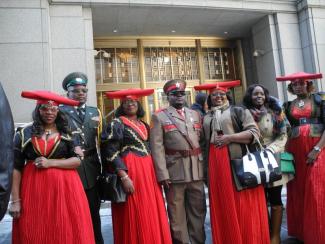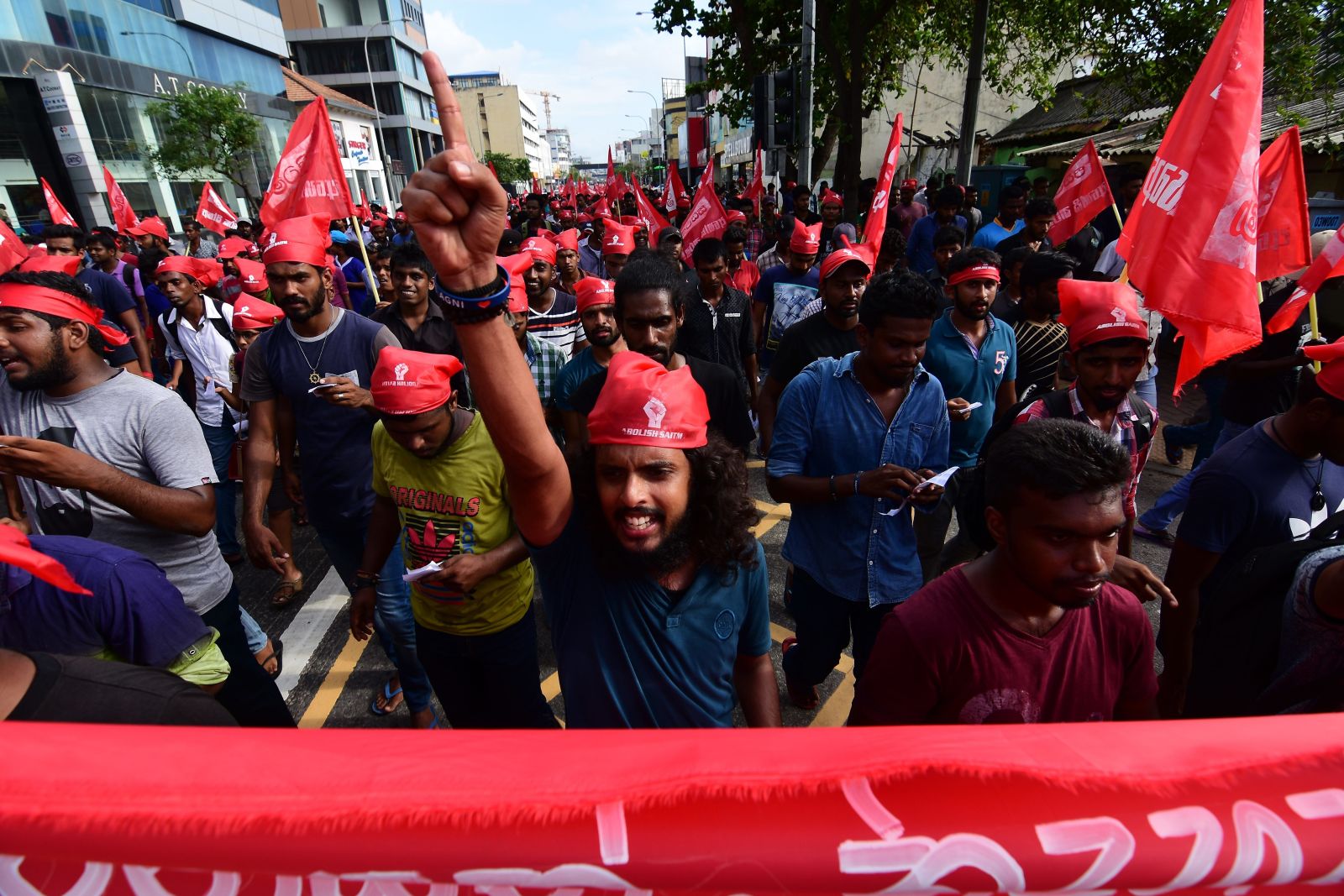Colonial past
Remembrance and retributive justice

For many years, German officialdom avoided using the term “genocide”. However, there is no other fitting word for what occurred in the years 1904 to 1908 under German colonial rule in then South-West Africa, as Reinhart Kößler and Henning Melber elaborate in a recently published book.
German troops killed masses of people who belonged to the Herero und Nama communities, cutting off the escape routes and systematically destroying all livelihoods. It took Germany’s Federal Government until 2015 to accept the word “genocide”, and it had not officially apologised for the atrocities by the time the book was finalised.
Kößler and Melber point out that Germany’s colonial history had a bearing on the Nazi dictatorship. But whereas it has been high on the public agenda in Germany for decades to come to terms with the Holocaust, the war of extermination against the Herero and Nama is largely ignored and neglected. In contrast, Namibians themselves are well aware of the genocide and its impacts. The victims’ descendants, for example, are still largely excluded from land ownership (note Melber’s essay in D+C/E+Z e-Paper 2017/07, p. 29). The co-authors show, moreover, that dealing with the two countries’ shared history remains an often-controversial challenge for German and Namibian officialdom.
Special envoys of both countries have been officially discussing how to handle the matter since 2015. They have hardly involved the victims’ descendants, however, even though the UN Declaration on the Rights of Indigenous Peoples of 2007 stresses this as a requirement. Members of victims’ organisations now demand to participate in the German-Namibian talks, and they have approached a court in New York to claim financial compensations. The case has been postponed twice and is now scheduled for 13 October.
What should be the consequences of genocidal history in today’s German-Namibian relations? According to Kößler and Melber, the official acknowledgement of genocide by Germany’s Federal Government is not enough without an apology and compensations. In the scholars’ eyes, this should not be about paying money to individuals. They demand restorative justice, arguing that Germany’s emphasis of having a special responsibility towards Namibia and affording substantial official development assistance (ODA) for the country do not suffice. They point out, moreover, that a large share of German ODA benefits the German community in Namibia. Kößler and Melber want stolen land to be returned and massive infrastructure investments to benefit all people.
The authors insist, moreover, that sensitivity in personal interaction is indispensable for rapprochement and meaningful dialogue. A shared culture of remembrance is needed, and the German public must debate and understand colonial history. The co-authors appreciate the progress that has been made with the admission of genocide, but they insist that much more needs to happen. Among other things, they argue for:
- a bilateral commission on history textbooks,
- school partnerships and exchange of students,
- a shared national holiday and other joint reconciliation measures,
- monuments in public spaces to remind people of what happened, including the renaming of streets or squares, and
- exhibitions that educate people about colonial history.
Book
Kößler, R., and Melber, H., 2017: Völkermord – und was dann? Die Politik deutsch-namibischer Vergangenheitsbearbeitung (Genocide – and then what? The politics of German-Namibian history – only available in German). Frankfurt, Brandes & Apsel.










